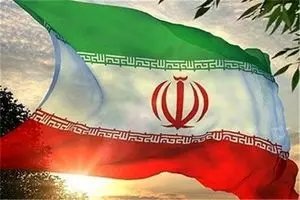Israel deliberately starving Gaza, Amnesty International says
Israel deliberately starving Gaza, Amnesty International says

Amnesty International has accused Israel of carrying out a deliberate campaign of starvation in the Gaza Strip.
In a report published on Monday, the human rights group said Israel was "systematically destroying the health, well-being and social fabric of Palestinian life", citing testimonies of starved people.
The combination of widespread starvation and disease in the besieged enclave is not a byproduct of military operations, it added, but rather the outcome of Israeli plans designed to bring about the "physical destruction" of Palestinians.
"The testimonies we have collected are far more than accounts of suffering, they are a searing indictment of an international system that has granted Israel a license to torment Palestinians with near-total impunity for decades," said Erika Guevara Rosas, senior director for research, advocacy, policy and campaigns at Amnesty International.
"The impact of Israel's blockade and its ongoing genocide on civilians, particularly on children, people with disabilities, those with chronic illnesses, older people and pregnant and breastfeeding women is catastrophic," Rosas added.
The latest report is based on testimonies collected in recent weeks with starved displaced civilians, Amnesty said.
The interviews across three different displacement camps in Gaza City revealed that none of them consumed any eggs, fish, meat, tomatoes, or cucumbers for at least a month.
"This widespread scarcity of fresh and nutritious food is a result of both Israel's suffocating blockade and its systematic destruction of food production sources, including large swathes of agricultural land, poultry and other livestock farms, during military operations, through shelling, bombardment or destruction by manually laid explosive," the report said.
It added that Israel's policies have been "particularly devastating" for pregnant and breastfeeding women, with many speaking of the difficulty in securing basic necessities needed for their survival - such as food and water.
The women shared experiences of enduring poor conditions while living in tents and going through an extreme heatwave.
"They also shared feelings of guilt for failing to provide for their children, fears over who would care for their children if they were killed, and anxiety over the impact of malnutrition on the growth and wellbeing of their children," the report added.
Lack of medical necessities
An emergency doctor at al-Shifa Hospital in Gaza City, speaking to Amnesty, underscored the risks posed to Gaza's population, especially the most vulnerable demographics - such infants, children with pre-existing conditions, older persons and those living with disabilities - by the lack of nutrition, medication, hygiene and clean water.
"The doctor said that extreme mass starvation has overshadowed other health emergencies, particularly the alarming rise in infectious and waterborne diseases, meningitis, and Guillain-Barré Syndrome (GBS)," the report noted.

GBS is a rare neurological disease that causes the body's immune system to attack the peripheral nervous system.
"He added that a severe shortage of antibiotics and the extreme load on his hospital, which is only partially functioning, have compounded what he described as an 'invisible catastrophe,' explaining that the spread of disease, or people struggling with chronic conditions that they [used] to treat before, often go unseen because there is this 'preoccupation with only the amount of food that enters, without looking at the full picture.'"
Aid workers at two organisations said that requests to bring in antibiotics were rejected by the Coordinator of Government Activities in the Territories (Cogat), a unit at Israel's Ministry of Defence.
Rosas stressed that "the world cannot continue to pat Israel on the shoulder for trickling in aid and viewing these cosmetic measures as a sufficient response to its calculated destruction of the life of Palestinians in Gaza".
"In the face of the horrors Israel is inflicting on the Palestinian population in Gaza, the international community, particularly Israel's allies, including the European Union and its members must uphold their moral and legal obligations to bring an end to Israel's ongoing genocide," Rosas added.
Since 7 October, Israel has killed 62,000 Palestinians, with over 155,880 wounded.






